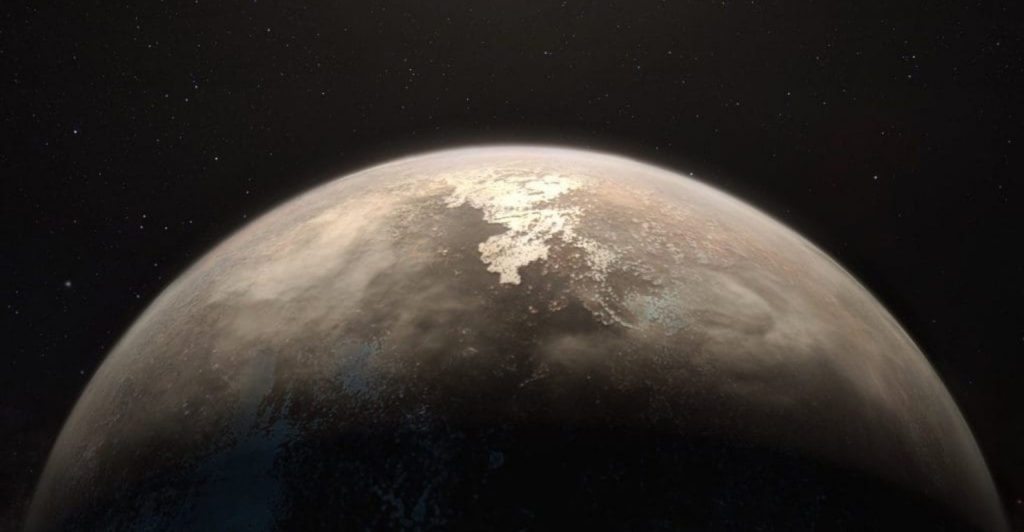In a major find, astronomers have discovered a new planet located just 11 light years away. Named Ross 128 b, the planet is similar in size and has a surface temperature close to Earth.
Ross 128 b orbits a mostly-inactive red dwarf star, meaning it has the potential to be hospitable to life forms. Nicola Astudillo-Defru of the Geneva Observatory said the discovery is a major astronomical breakthrough.
“Ross 128 is much more comfortable for the development of life,” she told BBC News. “But we still need to know what the atmosphere of Ross 128 b is like. Depending on its composition and the reflectivity of its clouds, the exoplanet may be life-friendly with liquid water as the Earth, or sterile like Venus.”
Xavier Bonfils from the Institute of Planetology and Astrophysics in Grenoble led the study, and says the planet is “an excellent alternative target” to the closer, less hospitable planet Proxima b.
The discovery was made using a High Accuracy Radial velocity Planet Searcher at the La Silla Observatory in Chile, and is the result of over a decade of monitoring.
Having discovered Ross 128 b has a temperature between -60 and +20°C, scientists are now looking to determine if the atmospheric composition is suitable.
“It is still a debate what are the best biomarkers,” Astudillo-Defru says. “For now we have di-oxygen (O2) and ozone as good bio-markers, others like carbon dioxide or methane can be generated both from geological events or life. For sure we will start looking for these species and water vapour.”
New observatories are expected to aid the anaylsis of Ross 128 b further, Dr Bonfils explains. An Extremely Large Telescope (ELT) in Europe will “provide both the collecting power and the angular resolution to observe Ross 128 b directly,” he says. “We will be able to see if it has an atmosphere and, eventually, to search for O2, water and CH4 (methane).”
“Each one would be super exciting and an important step toward the evidence of life outside our Solar System. Yet, individually, none is a definitive proof for life. There are ways to produce either O2 or CH4 abiotically. However, for now, we don’t know any false positive if all three were to be detected together.”







